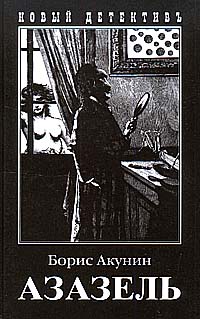What a coincidence (see the previous post). Over at Salon, Farhad Manjoo interviews James Carroll, author of a “biography” of the Pentagon, House of War. “[I]f Carroll’s book actually reads … like a story not just of the Pentagon but of the last half-century of American foreign policy,” Manjoo writes, “well, that’s the point.” He then quotes Carroll, a former Catholic priest and son of an Air Force general who worked there: “The Pentagon has been so much at the center of national life that one could write an entire history of the contemporary United States in its terms.”
Here is Manjoo’s summary:
Carroll’s specific complaints will ring familiar to any peacenik: He argues that since Sept. 11, 1941, when ground was broken at the building’s site—Carroll makes much of this date, exactly 60 years before United flight 77 crashed into the building’s side—the U.S. has embarked on a series of foreign policy disasters. Among other things, he believes that dropping nuclear weapons on Japan was a mistake; that we should not have developed, and then shouldn’t have tested, the H-bomb; that we should have shared our nuclear knowledge with the Soviets and instituted an international framework to abolish nuclear weapons; that we were mistaken to think of the Soviets as our mortal enemies, and thus mistaken to have turned political differences into a near world-ending Cold War; that we missed many opportunities to end the nuclear arms race during that war, and that we were far more belligerent than the Soviet Union in how we conducted ourselves with those weapons; and that, finally, even today, though we no longer face an enemy that poses an existential threat to the nation, we’re needlessly maintaining a military force that is more dangerous than any other force in the world, capable of instantly destroying all life on the planet.
What’s interesting about this catalog, as Carroll points out, is that at various points in the nation’s history, many men in government made similar arguments. Their cries were drowned out, though, by the culture of the Pentagon, which always wanted more—more bombs, more planes, more ships, more war. It’s this thesis, as well as Carroll’s unquestionably solid research, that makes his story much more than a standard antiwar rant. Other than a few stock villains—notably the mad bomber Curtis LeMay, the Air Force general who controlled the American nuclear arsenal for more than two decades—Carroll doesn’t characterize the folks who worked in the building as evil. “The Pentagon’s is a story of ordinary people who acted with good intentions, faced tragic dilemmas, and resisted what they saw happening right in front of them,” he writes. They didn’t set out to make the mistakes they did; rather, institutional momentum led them astray.
The interview is well worth reading in its entirety. One answer in particular resonated with something said here a while back. Manjoo asks Carroll how the Pentagon has changed the American people. “You say we’ve become a militarized, ‘vengeful people.’ Do you really believe that?” Carroll says:
I do. I love my country, and the American people are good people. But we are allowing the government to do things in our name that are wrong, they are criminal. If I could say something really outrageous, I think that the American people today have turned against the war in Iraq for the wrong reasons. They’ve turned against it because we’re losing. We should be against this war because it’s wrong and unnecessary. If this war had gone the way Rumsfeld and company thought it would go, Americans would have been fine with it. And that’s appalling. And of course if it had gone the way they thought it was going to go, we’d be in Iran today. That’s the tragic good news here. This war has gone so badly that the American imperial enterprise has been stalled. Thank God for that.
But, again, we the American people have not reckoned with what we did at the end of World War II. And one of the things that happened on 9/11 is that we looked at ourselves and presumed to think of ourselves as world-historic victims. What we suffered was tragic, and indeed a catastrophe, but on the scale of suffering it was very minor compared to the kind of suffering we’ve inflicted on other nations, and we’re still doing today.
“Well, is it possible to change this?” Manjoo asks. Carroll replies:
To me the greatest symbol of hope is what happened at the end of the Soviet Union in the 1980s, beginning with Chernobyl. It’s a miracle of my lifetime that a nonviolent popular movement led to the demise of the Soviet system. And if that can happen, the equivalent can happen on our side. We have to break the myth of military power. We have to understand that there are many more grievous threats to our nation than those that the Pentagon can protect us from.



 browsing in an online Russian bookstore, and the quaintly antiquarian covers caught my eye. Then the description piqued my interest: the books are part of a “literary project” to present “all genres of the classical criminal novel.” For instance, the first book, Azazel, was a “conspiratorial detective story” (конспиративный детектив); the book I’m starting now, Coronation, is a “detective story of high society” (великосветский детектив). I guess I have a soft spot for that sort of encyclopedic ambition. After reading the first two, I decided I had to have the whole set.
browsing in an online Russian bookstore, and the quaintly antiquarian covers caught my eye. Then the description piqued my interest: the books are part of a “literary project” to present “all genres of the classical criminal novel.” For instance, the first book, Azazel, was a “conspiratorial detective story” (конспиративный детектив); the book I’m starting now, Coronation, is a “detective story of high society” (великосветский детектив). I guess I have a soft spot for that sort of encyclopedic ambition. After reading the first two, I decided I had to have the whole set.